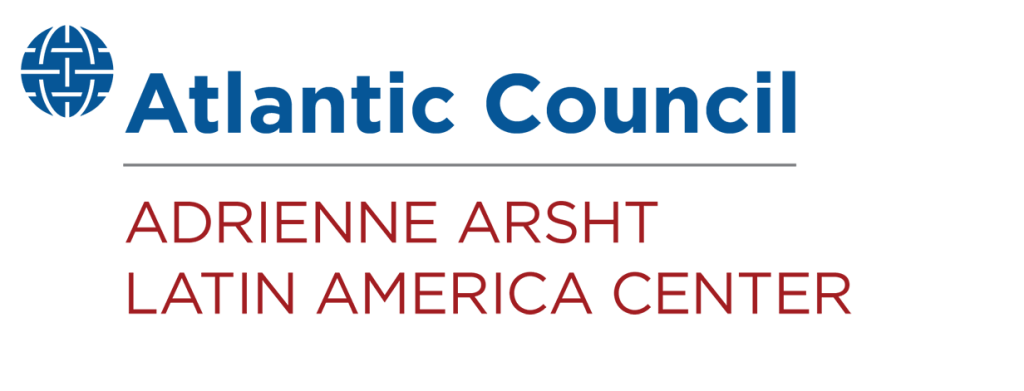Five big questions as America votes: Latin America

As part of the Atlantic Council’s Elections 2020 programming, the New Atlanticist will feature a series of pieces looking at the major questions facing the United States around the world as Americans head to the polls.
The 2020 US presidential election is taking place during a global pandemic that has disrupted economies and heightened existing social and political issues around the world. Latin America is not exempt from these pressures. The region has been profoundly impacted by the spread of the coronavirus as currently five of the top ten countries with the highest number of reported coronavirus cases in the world are in Latin America. Given its proximity to the United States, an economically vibrant and healthy Latin America is in the interest of the next US administration. Now, more than ever, it is important for the United States to lean in on Latin America as a strategic partner and continue growing its existing economic, social, and political ties for mutual benefit.
Below are the five major questions facing the United States in Latin America as the US elections approach, answered by top experts:

Given the supply chain vulnerabilities that COVD-19 has unearthed globally, and the likely global reconfiguration of supply chains, what steps can the next US administration take to deepen commercial cooperation and advance nearshoring in Latin America and the Caribbean?
“While both presidential candidates have been pushing a “Made in America” agenda, no one believes all jobs will return to the United States. The next administration will be tasked with strengthening the access to critical products and technologies that are vital to US national security. Given its strong trade relationship with the United States, Latin America and, in particular, countries like Mexico, Chile, and Colombia, could play a leading role in a post-COVID-19 reconfiguration of global supply chains. For this opportunity to fully materialize, the United States must take certain steps to deepen commercial collaboration with its regional allies with an eye toward enhancing Latin America’s ability to attract foreign investment.
“To enhance its trade engagement with Latin America, the next US administration should: promote the modernization of trade standards and regional or bilateral trade agreements that provide trade preferences with the United States; endorse knowledge-transfer programs to further support the development of a highly skilled workforce in Latin America; assist in the development of rules and procedures to properly secure and safeguard supply chains; and lastly, actively advocate for the inclusion of other Latin American countries in international organizations such as the Organisation for Economic Co-operation and Development.
“Greater regional cooperation can lead to more investment, help modernize infrastructure, and create better jobs in Latin America. Consequentially, these changes would generate important strategic benefits for the United States, including a strengthening of its supply chains for critical goods.”
Ana Heeren, senior managing director, FTI Consulting; member, Adrienne Arsht Latin American Center Advisory Council, Atlantic Council

How can the United States help Latin America to rebuild as COVID-19 continues to disproportionately affect the region?
“COVID-19 has disproportionately affected Latin America, threatening years of socioeconomic progress and potentially setting back regional development for the foreseeable future. Long existent social inequalities mean that this disease disproportionately affects the poor and the more vulnerable segments of the middle class. Underlying structural challenges will affect the ability to balance health protocols and economic reactivation steps: nearly half of the population works in close contact jobs and only one in five workers in jobs that can be performed remotely.
“The United States should begin re-asserting its partnership with the region by establishing a regional health coordination group that provides technical assistance in the supply chain delivery of COVID-19 treatments and eventually vaccine. But we need to go bigger. This is the moment for our era’s version of a bold, comprehensive strategy that helps the region to rebuild from the pandemic and to leapfrog in its development at the same time. Through a whole-of-government strategy, the United States should work collaboratively with regional partners to: strengthen the local conditions that will facilitate nearshoring; provide expanded development financing; offer technical support to strengthen institutions, improve the rule of law, and enhance transparency; expand educational partnerships with local universities; and work with regional partners in the transition to the clean energy of tomorrow. We must also incentivize US investment in the region with a focus on advancing past the technological barriers that perpetuate inequality.
“The United States cannot do this alone. Working with multilateral institutions and regional partners—from across the political spectrum—will be imperative to maximizing efficient use of human and financial resources. This is not just about COVID-19 recovery. It’s about strengthening democracies and helping to build trust in institutions. This pandemic hit at a time of simmering social unrest in the region and discontent in many countries with their direction and future. The United States, rather than China, should be the partner of choice in rebuilding and helping to reorient the direction of societies.”
Jason Marczak, director, Adrienne Arsht Latin America Center
“The COVID-19 pandemic has exacerbated inequalities, placed tremendous strains on countries’ institutions, and threatened years-long progress in Latin America. According to the World Bank, the region’s economies will not return to 2019 levels until 2023.
“The United States is a key partner and ally for Latin American countries as they prepare for harsher medium- to long-term effects of COVID-19 on their economies, health systems, and almost every aspect of their societies. For the immediate future, the United States should continue to provide technical and humanitarian assistance (donating ventilators, test kits, protective suits, and N-95 masks) to countries most affected, which will keep citizens safe, improve case detection and contact tracing, as well as strengthen surveillance and response capacities, including when the vaccine is available.
“The United States should also continue to prioritize private investment, through institutions like the US International Development Finance Corporation, in energy and infrastructure projects—as well as small and medium enterprises—that would boost economic morale and productivity in the region. There is an opportunity in the relocation of US manufacturing moving away from China. For this investment to generate long-lasting impact, the United States needs to work with regional partners to generate common understanding and have effective implementation. Fostering local support would create a business-friendly environment, and diminish job informality, poverty, inequality, and immigration rates, if this investment is accompanied by assistance to reduce insecurity and strengthen rule of law, as outlined in the Atlantic Council report Central America Economic Reactivation in a COVID-19 World: Finding Sustainable Opportunities in Uncertain Times.”
María Eugenia Brizuela de Ávila, former minister of foreign affairs, El Salvador; nonresident senior fellow, Adrienne Arsht Latin America Center, Atlantic Council

How should the next administration further position the United States—rather than China—as the partner of choice for countries across the region?
“With or without China, it behooves the next US administration to adopt a sharper, more nuanced, and partnership-based approach to Latin America. First, building and maintaining constructive ties with the region requires consistent partner-like actions and narratives. For instance, cultural and interpersonal ties are among the United States’ most significant and irreplaceable comparative advantages in the hemisphere vis-à-vis China.
“Second, in areas where the next administration considers China to be a strategic competitor such as 5G or official lending, the United States needs to provide the region with feasible alternatives to China. Initiatives like America Crece signaled a pivotal first step in this direction. However, since US government resources may not always prevail in absolute terms, the continuation of focused resource mobilization will be vital. By focusing on strategic issues such as standards, transparency, private-sector engagement, and working with its allies, the United States could accentuate its own advantages and mitigate the financing disadvantage.
“Third, Latin America would appreciate more nuances in US policymaking. Specifically, on China, regional governments and companies will continue working with China—as with the United States—driven by practical commercial needs. As such, countries cannot choose sides especially at a moment of deep demand for investment and new export opportunities. The next administration should identify, globally and in Latin America, not only the areas of competition but also constructive collaboration or necessary coordination with China. This may include immediate challenges such as COVID-19 or longer-term challenges such as climate change. After all, the United States should remain committed to hemispheric prosperity and stability because of the region itself, not because of China.”
Pepe Zhang, associate director, Adrienne Arsht Latin America Center, Atlantic Council

In which ways can the United States support the millions of migrants and refugees fleeing economic and humanitarian crises?
“Migration crises are nothing more and nothing less than the external manifestation of internal national crises. Considering the fragility of the economies of the region, especially in post-COVID-19 times, if we don’t invest time, energy, and resources on democracy-building and consolidation, and on developing policies to improve economic outcomes, the possibility of new emigration hotspots is always there. The United States has been a key contributor to development cooperation to address the root causes of these migratory processes. It has also been a crucial partner, both politically and in financial terms, to the countries hosting the more than 4 million Venezuelans who have been displaced in recent years but also to Central American countries from which almost a million people have moved from in the last year. This support needs to continue.
“However, with the United States now taking on such an important regional role in the next two years as the host and leader of the Summit of the Americas process, it is crucial that the United States take this as an opportunity to do at least three things: Firstly, shed light on the effects of not addressing these economic and humanitarian crises; secondly, garner support and mobilize international cooperation to address the root causes and effects of these crises, and finally, facilitate agreements and points of consensus on how best to address migration and force displacement crises in the future.”
Betilde Muñoz-Pogossian, director, Department of Social Inclusion, Organization of American States; contributor, Adrienne Arsht Latin America Center, Atlantic Council

How can the next US administration accelerate the reconstruction of Venezuela’s democratic institutions?
“The next US administration should work toward building an international coalition that addresses the political and humanitarian crisis in Venezuela. By engaging new US allies that have influence and interests in Venezuela, the chances of a peaceful resolution to the crisis could increase exponentially. This new engagement could help counter potential democratic destabilization in a post-COVID-19 Latin America, which threatens the security of the Western Hemisphere.
“Additionally, the next US administration should continue working with democratic forces and civil society in Venezuela to maintain their operational capacity and maximize impact on the ground. However, the United States should recalibrate its “maximum pressure” strategy; and develop better incentives that facilitate a peaceful and sustainable resolution and leverage the hardline approach of sanctions and diplomatic pressure to create conditions for a democratic transition. Working with global partners in supporting Venezuela’s democratic forces must be a central component of any strategy.”
Diego Area, associate director, Adrienne Arsht Latin America Center, Atlantic Council

El Centro para América Latina Adrienne Arsht amplía la comprensión de las transformaciones regionales y propone soluciones constructivas para informar como los sectores públicos y privados pueden promover la prosperidad en el hemisferio.
Image: Manaus, Brazil.- In the photos, it shows the streets of Manaus during the coronavirus pandemic. (via REUTERS)